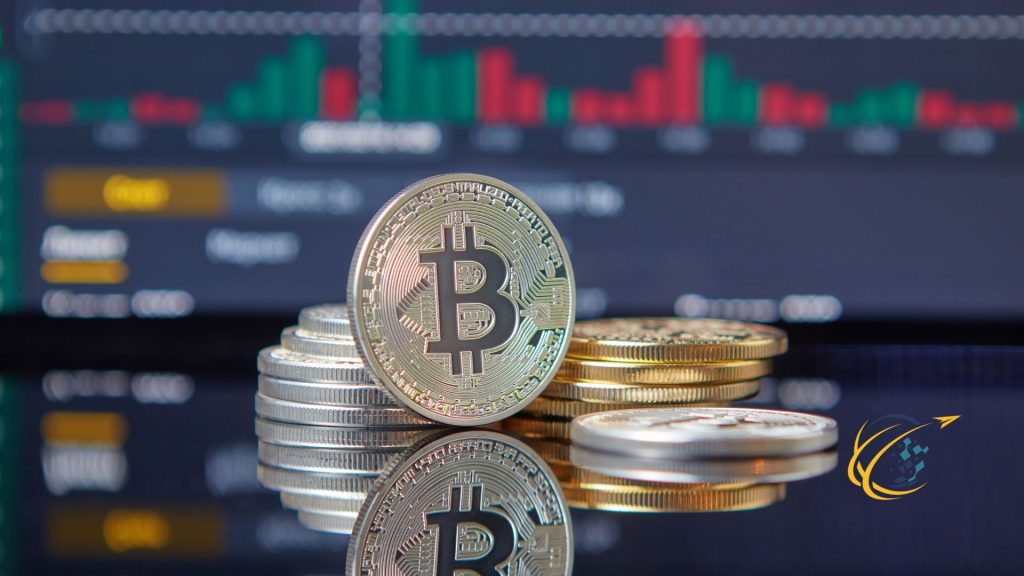Decentralized Finance (DeFi) and Cryptocurrency have become central topics in the discussion of the future of finance. These innovations are not just technological advancements; they fundamentally shift how financial systems operate, offering new opportunities and challenges. As blockchain technology evolves, DeFi and cryptocurrencies are set to disrupt traditional financial institutions by providing decentralized alternatives to existing services.
The Rise of Decentralized Finance (DeFi)
Decentralized Finance (DeFi) refers to financial services built on blockchain technology that operate without central intermediaries like banks. Instead of relying on traditional financial institutions, DeFi uses smart contracts, which are self-executing agreements with terms written directly into code. This system enables users to engage in financial activities such as lending, borrowing, trading, and investing.
DeFi has experienced rapid growth, with the total value locked (TVL) in DeFi protocols surpassing $200 billion in 2022. The appeal of open, permissionless financial systems, where anyone with internet access can participate, drives this expansion. DeFi platforms often offer higher investment yields than traditional financial institutions, attracting both retail and institutional investors. Additionally, recording all transactions on a public ledger enhances trust and accountability through blockchain transparency.
However, the rise of DeFi also comes with challenges. The lack of regulation and oversight in this space has led to instances of fraud, hacks, and financial instability. For businesses considering entering the DeFi space, understanding these risks and implementing robust security measures is crucial. Despite these challenges, DeFi’s potential to democratize finance and offer more accessible financial services remains undeniable.
The Role of Cryptocurrency in the Financial Ecosystem
Cryptocurrency is a digital or virtual currency that uses cryptography for security and operates independently of a central authority. In 2009, developers introduced Bitcoin, the first and most well-known cryptocurrency. Since then, thousands of cryptocurrencies have emerged, each with unique features and use cases. Cryptocurrencies are now integral to the financial ecosystem, offering new ways to store value, transfer money, and conduct global transactions.
A key advantage of cryptocurrencies is their ability to facilitate cross-border transactions with minimal fees and no intermediaries. This feature makes them particularly attractive in regions with limited access to traditional banking services. Additionally, cryptocurrencies like Bitcoin are often viewed as hedges against inflation and currency devaluation, attracting investors seeking portfolio diversification.
Cryptocurrency integration into traditional financial systems is also gaining momentum. Major companies like Tesla and PayPal now accept cryptocurrencies as payment. Several countries are exploring central bank digital currencies (CBDCs) to complement or replace physical money. These developments signal growing cryptocurrency acceptance in mainstream finance, solidifying its role in the global economy.
However, cryptocurrency volatility remains a significant concern. Price fluctuations can be extreme, making them risky for investors and businesses. Additionally, regulatory uncertainty continues to pose challenges as governments struggle to integrate these assets into existing legal frameworks. Businesses must stay informed about regulatory developments and understand cryptocurrency risks to make informed decisions.
The Intersection of DeFi and Cryptocurrency
Decentralized Finance (DeFi) and Cryptocurrency are closely intertwined, with DeFi platforms often relying on cryptocurrencies to function. Most DeFi protocols are built on blockchain networks like Ethereum, which uses Ether (ETH) as its native cryptocurrency. Users typically need to hold and use cryptocurrencies to participate in DeFi activities, such as lending, borrowing, or providing liquidity to decentralized exchanges.
The integration of DeFi and cryptocurrency creates a powerful synergy, allowing users to leverage the benefits of both. For example, users can earn interest on their cryptocurrency holdings by lending them through DeFi platforms, or they can use cryptocurrencies as collateral for loans. This integration has created new financial opportunities, particularly for those underserved by traditional financial institutions.
Despite the opportunities, the intersection of DeFi and cryptocurrency also presents risks. The lack of regulation in the DeFi space means that users are often vulnerable to scams, hacks, and market manipulation. Additionally, the complexity of DeFi protocols can make them difficult for the average user to navigate, leading to potential losses due to user error. For businesses looking to engage with DeFi and cryptocurrency, it is essential to conduct thorough research and consider the potential risks alongside the benefits.
The Future of DeFi and Cryptocurrency
The future of Decentralized Finance (DeFi) and Cryptocurrency looks promising as these technologies continue to evolve and gain mainstream adoption. Innovations such as layer 2 scaling solutions, cross-chain interoperability, and improved smart contract security will address current challenges in the DeFi space, making it more accessible and secure for users.
Additionally, the development of decentralized autonomous organizations (DAOs) is likely to play a significant role in the future of DeFi. Smart contracts, rather than centralized entities, govern DAOs, enabling decentralized decision-making and management. This model could revolutionize how businesses and communities are organized, pushing the boundaries of what’s possible with blockchain technology.
For businesses, the continued growth of DeFi and cryptocurrency presents both opportunities and challenges. On the one hand, these technologies offer new ways to engage with customers, raise capital, and streamline operations. On the other hand, the regulatory landscape is still evolving, and businesses must navigate the complexities of compliance while managing the risks associated with these new financial systems.
Conclusion
Decentralized Finance (DeFi) and Cryptocurrency are reshaping the financial landscape, offering new opportunities for businesses and individuals alike. While the potential for innovation is vast, so are the risks and challenges. By staying informed, adopting best practices, and engaging with these technologies thoughtfully, businesses can position themselves to thrive in this rapidly evolving space. As DeFi and cryptocurrency continue to mature, they are likely to play an increasingly central role in the future of finance, driving further disruption and transformation across industries.


